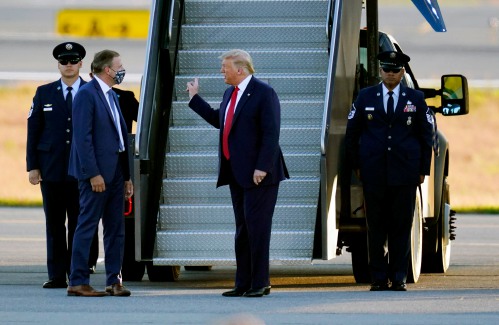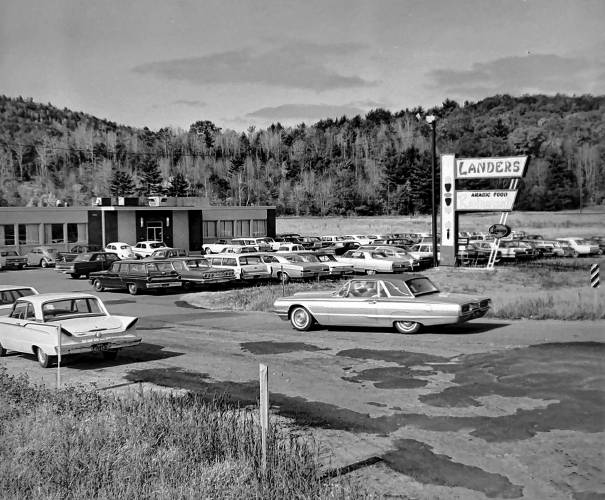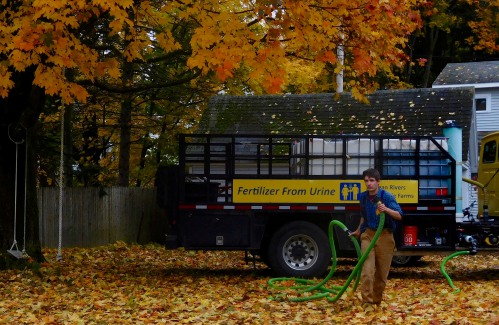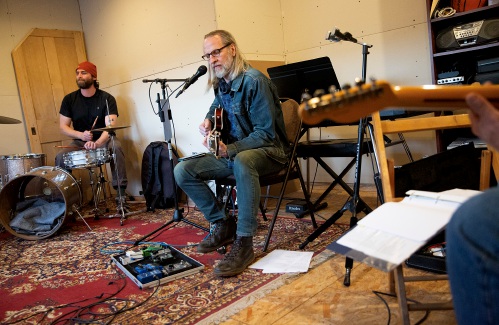
Missing Dartmouth student’s body found in Connecticut River
WEST LEBANON — Police retrieved a body they identified as that of a missing Dartmouth College graduate student from the Connecticut River in Windsor on Monday evening.Authorities found the body of Kexin Cai, 26, of West Lebanon, a graduate student in...

Dartmouth faculty censures college president over response to protest
HANOVER — Members of the Faculty of Arts and Sciences have voted to censure Dartmouth College President Sian Leah Beilock, publicly rebuking her handling of a pro-Palestinian protest on campus earlier this month.The resolution passed narrowly — 183 to...
Most Read
 Missing Dartmouth student’s body found in Connecticut River
Missing Dartmouth student’s body found in Connecticut River
 Dartmouth campus and football communities remember late head coach Buddy Teevens
Dartmouth campus and football communities remember late head coach Buddy Teevens
 Developer seeks to convert former Brookside nursing home to apartments
Developer seeks to convert former Brookside nursing home to apartments
 Dartmouth faculty censures college president over response to protest
Dartmouth faculty censures college president over response to protest
 DHMC union organizers say they have enough signatures to force vote
DHMC union organizers say they have enough signatures to force vote
 Rivendell superintendent departure adds to district’s challenges
Rivendell superintendent departure adds to district’s challenges
Editors Picks
 Retiring Windsor County state senator honored for three decades of service
Retiring Windsor County state senator honored for three decades of service
 Editorial: Dartmouth lets protesters know where they stand
Editorial: Dartmouth lets protesters know where they stand
 Publisher’s note: Valley News launches updated online app
Publisher’s note: Valley News launches updated online app
Sports

Local Roundup: Lebanon boys tennis finish regular season undefeated
Editor’s note: To have your team’s results included in the Local Roundup, visit https://www.vnews.com/submit-a-score.Boys Tennis Lebanon 6, Oyster River 3 Key players: Lebanon — Lavi Halwawala Highlights: Halwawala played well against a...
 Late-inning hits fuel Wasp win over Windsor
Late-inning hits fuel Wasp win over Windsor
 Miscues overwhelm Hurricanes baseball in Tuesday night contest
Miscues overwhelm Hurricanes baseball in Tuesday night contest
 Local Roundup: With win, Lebanon girls tennis locks in No. 2 tourney seed
Local Roundup: With win, Lebanon girls tennis locks in No. 2 tourney seed
Opinion

Editorial: Response to campus protests only adds fuel to the fire
It’s far too soon to tell what the ultimate effect will be of the demonstrations that have roiled college campuses this spring, including those at Dartmouth, the University of New Hampshire and the University of Vermont. But we hazard an educated...
 Editorial: Chris Sununu’s moral vacuum
Editorial: Chris Sununu’s moral vacuum
 Editorial: Gambling tarnishes America’s sporting life
Editorial: Gambling tarnishes America’s sporting life
 By the Way: A white nationalist’s many mistruths
By the Way: A white nationalist’s many mistruths
 Column: The age-old question of what to read
Column: The age-old question of what to read

Your Daily Puzzles

An approachable redesign to a classic. Explore our "hints."

A quick daily flip. Finally, someone cracked the code on digital jigsaw puzzles.

Chess but with chaos: Every day is a unique, wacky board.

Word search but as a strategy game. Clearing the board feels really good.

Align the letters in just the right way to spell a word. And then more words.
Photos

Playing games
 Wall work
Wall work
 Casting about
Casting about
 Words of welcome
Words of welcome
 Maternal meditation
Maternal meditation
Arts & Life

Enfield Shaker Museum renovations underway
Greg Morgan, left, from Geddes Building Mover, of Bow, N.H., guides a beam as the company's owner Jim Paveglio lifts it out from under the Brethren’s West Shop at the Enfield Shaker Museum on Tuesday morning. The 55-ton building, built in 1820 as a...
 A Look Back: Upper Valley dining scene changes with the times
A Look Back: Upper Valley dining scene changes with the times
 The future of fertilizer? Pee, says this Brattleboro institute
The future of fertilizer? Pee, says this Brattleboro institute
Obituaries
 Christine Ann Hoyt
Christine Ann Hoyt
Tunbridge, VT - Christine Ann Hoyt, age 61, passed Sunday, December 17, 2023. A memorial service for Christine will be held Friday, May 24th, 2024 at 1pm at the Pavilion Building on the Tunbridge Fairgrounds, Tunbridge, VT. The Boar... remainder of obit for Christine Ann Hoyt
 Donald R. Vesper Sr.
Donald R. Vesper Sr.
Donald R. Vesper, Sr. West Lebanon, NH - Donald R. Vesper Sr, 83, died peacefully on Tuesday May 14, 2024, at the Jack Byrne Center for Palliative and Hospice Care in Lebanon NH. Donald was born on December 28, 1940, in Randolph, VT to p... remainder of obit for Donald R. Vesper Sr.
 Helena M. Magher
Helena M. Magher
Bradford, VT - Helena Magher, 76, passed away peacefully at the Margaret Pratt Community on May 15, 2024, with her niece by her side. She was born July 30, 1947, in Manchester, NH, daughter of Denis F. and Mary (LeBrecque) Magher. H... remainder of obit for Helena M. Magher
 Malcolm Carey
Malcolm Carey
White River Jct.,, VT - Malcolm Carey, 90, passed away peacefully at the Jack Byrnes Center on May 16, 2024 surrounded by his family. Malcolm was born on January 29, 1934 in Medfield, MA the son of Benjamin and Celia (Kirsner) Carey. H... remainder of obit for Malcolm Carey


 Affordable apartments slated for vacant city-owned land in Lebanon
Affordable apartments slated for vacant city-owned land in Lebanon
 After a career in public service, Jane Kitchel to retire from the Vermont Senate
After a career in public service, Jane Kitchel to retire from the Vermont Senate
 Raptors baseball breaks long slide vs. Wildcats
Raptors baseball breaks long slide vs. Wildcats

 Art Notes: Canaan Meetinghouse showcase brings musicians and listeners together
Art Notes: Canaan Meetinghouse showcase brings musicians and listeners together
